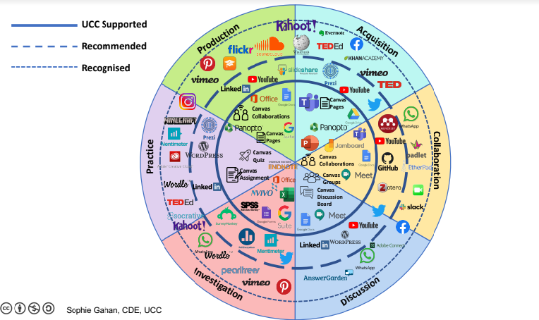Learning Design Online
Preparing for September? Here at the Centre for the Integration for Research Teaching and Learning we invite you to engage in an interactive online workshop which will help you plan for the development of your curriculum and your teaching approach.
Lasting only 90 minutes, the workshop will bring you through a series of structured exercises to consider your existing curriculum, to tweak your teaching practice and assessment design with a view to enhancing student learning. The workshop is framed within the context of UCC’s Academic Strategy and Connected Curriculum framework and will prompt you to consider practical blended and online learning options.
We look forward to seeing you at a workshop soon.

